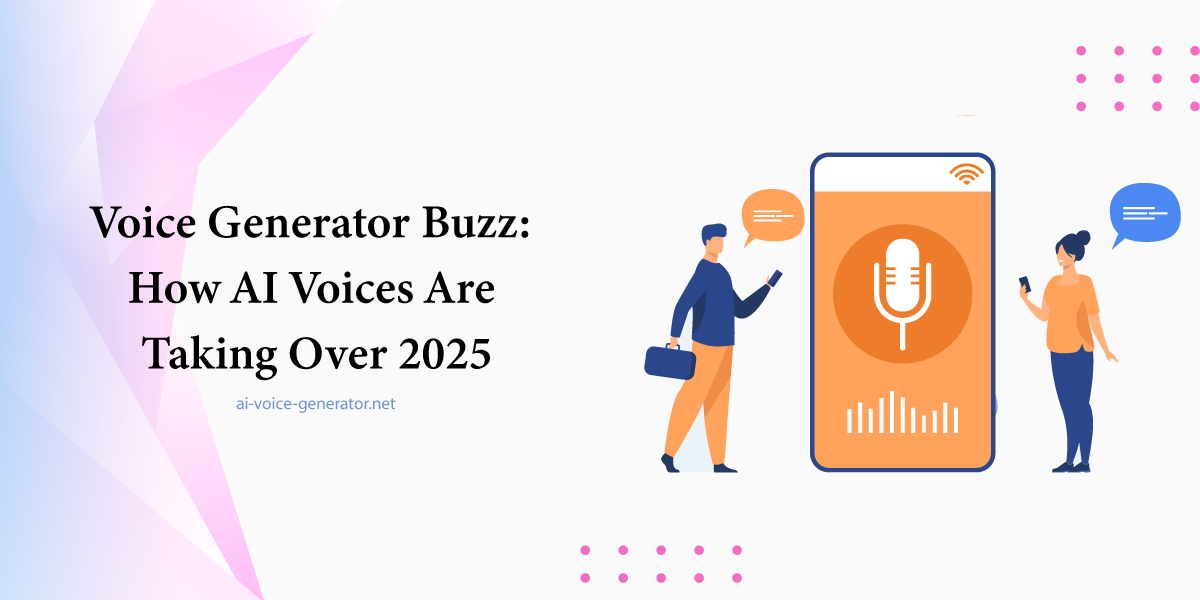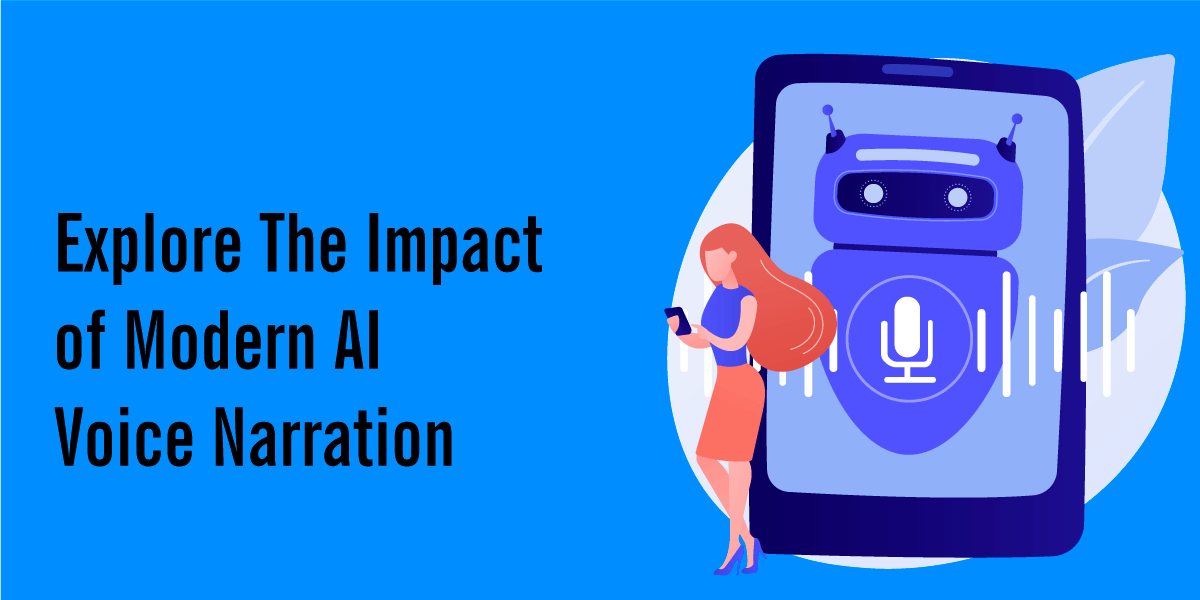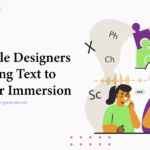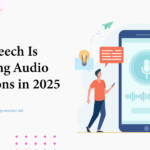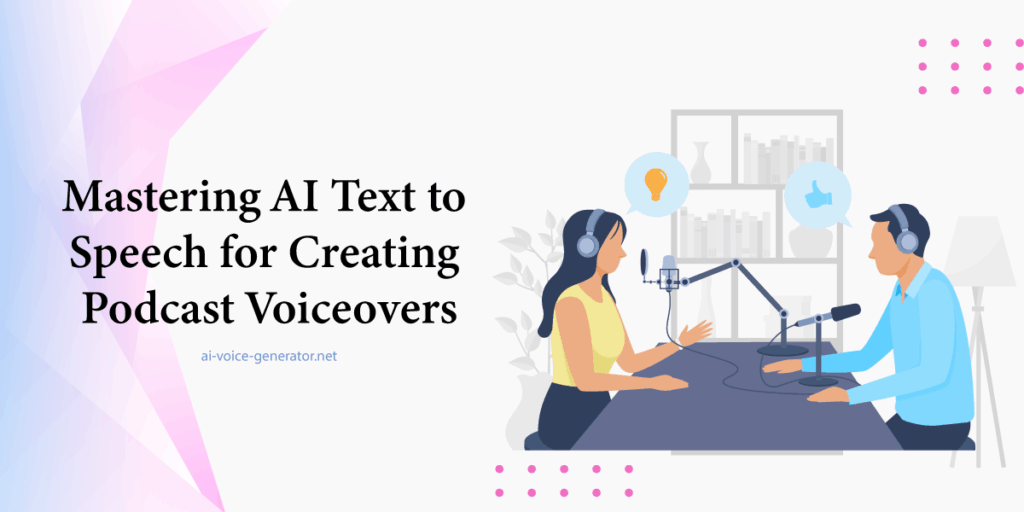
Mastering AI Text to Speech for Creating Podcast Voiceovers
In recent years, podcasting has grown into one of the most influential media platforms. Whether it’s an interview-based show, a scripted drama, or a solo commentary, the voice behind a podcast plays a critical role in how it’s received. For many creators, though, delivering consistent, high-quality audio isn’t always feasible, whether due to accent limitations, vocal fatigue, or a lack of professional recording equipment. That’s where AI text to speech technology enters the picture.
Today, creators are exploring synthetic voice solutions to streamline their production process. Leveraging these tools allows even small-scale podcasters to produce polished, engaging content. One of the key benefits here is the ability to create expressive, lifelike narration without having to step in front of a mic every time.
As the quality of synthetic voices improves, more creators are embracing this option. By using text to speech, podcasters can focus more on scripting and storytelling while leaving voiceover production to AI.
Why AI Voiceovers Are Becoming the Go-To for Podcasters
Voice consistency across episodes is essential for listener retention. However, real-world challenges like illness, background noise, or changes in recording equipment can disrupt that. With text to speech generator tools, creators can maintain the same tone, pitch, and delivery every single time, no matter when or where the content is created.
Additionally, when creators want to test multiple voice styles before finalizing one, they don’t need to re-record everything. They can just generate different variations instantly using an AI model. This ability to iterate quickly has changed the way audio production is approached, especially in serialized content.
Multilingual shows and localized podcasts also benefit tremendously from AI-generated voices. Instead of hiring voice artists for every language, creators can rely on high-quality text to speech voices to handle the heavy lifting while ensuring that the original essence of the content remains intact.
Understanding How AI Enhances Audio Narration
The technical progression in text to speech online tools is nothing short of impressive. What once sounded robotic and flat now comes across as nuanced, emotive, and believable. These modern systems can emphasize emotion, adjust pacing, and even convey sarcasm or excitement depending on the script.
This evolution is especially helpful in podcast storytelling. Whether it’s a suspenseful thriller or a relaxed discussion on wellness, the delivery of the narrative can make or break a podcast. By working with tools that allow subtle voice modulation, creators gain more flexibility over the emotional tone of their episodes.
At the same time, scriptwriting becomes more deliberate. Writers are now adapting their scripts based on how the voice will be interpreted and delivered, treating the AI voice as a performer rather than just a converter.
Real-World Applications of AI Voiceovers in Podcasting
Many podcasters are already integrating text to speech free options into their production pipelines. Some use AI voices to test how a script sounds before recording it themselves. Others use them for entire segments, especially for informational or news-style podcasts where clarity and neutrality are key.
There’s also a growing trend in narrative podcasts where AI-generated voices are used to portray secondary characters. This allows producers to maintain creative control without coordinating multiple human voice actors.
For example, in fictional podcasts that require dialogue from multiple perspectives, a text to voice generator can provide distinct voices for each character. This technique has made complex audio dramas more accessible to independent creators.
Benefits of Using AI Voices in Long-Form Podcast Series
Consistency is vital in long-form content. A podcast series that spans multiple seasons demands vocal reliability. With AI tools, this isn’t a concern anymore. A creator can rely on the same voice model across years, avoiding listener fatigue or confusion caused by shifting tones.
Another advantage is in cost-saving. Hiring professional narrators can be expensive, especially when dealing with long scripts or ongoing series. Using a text to speech generator ensures that the budget is spent on quality production rather than recurring voice talent fees.
Moreover, when scripts are revised or updated, changes can be reflected in the audio within minutes. This makes post-production smoother and more efficient.
How Free Tools Are Empowering New Podcasters
Beginners in the podcasting world often don’t have the resources to hire editors, mixers, or narrators. That’s why free online text to speech solutions are incredibly valuable. They lower the barrier to entry by providing access to realistic narration tools at no cost.
This democratization of audio production is encouraging new voices to emerge from around the world. From educators launching independent teaching series to hobbyists sharing niche interests, creators now have the freedom to explore audio storytelling without technical limitations.
You can explore one such powerful solution for creating professional voiceovers on this AI voice generator platform that simplifies high-quality narration for podcasts and other audio content.
The Rise of AI in Podcast Monetization and Scaling
As podcasting becomes more commercial, brands are searching for scalable voiceover solutions. For hosts juggling multiple shows or networks producing large volumes of content, AI-generated voiceovers help maintain branding and professionalism.
Sponsorship reads, promotional segments, or even entire branded episodes can be produced with AI text to speech. This enables brands to reach audiences faster and more efficiently than scheduling live sessions with voice actors.
Additionally, with multilingual capabilities, podcasters can now repurpose their content for global audiences, expanding their reach without creating entirely new productions from scratch.
Streamlining Accessibility Through AI Narration
Inclusivity in podcasting is being driven by the use of AI tools. Shows that once only existed in English can now be narrated in other languages and accents, widening access for diverse listeners. Text to audio free tools enable creators to expand their offerings to visually impaired or multilingual audiences without excessive cost or production time.
This approach isn’t just an ethical decision—it’s a smart strategy for growth. As podcasts begin to reach international markets, the demand for accurate, human-like voiceovers in various languages continues to rise.
Enhancing Editing and Post-Production with AI Tools
Editing audio is one of the most time-consuming aspects of podcasting. With AI voiceovers, much of the manual labor is reduced. Since AI voices are consistent in tone and pace, editing becomes easier and cleaner.
Noise reduction, retakes, and mic issues are no longer concerns. Plus, with high-quality text to speech voices, there’s no need for vocal warmups or perfect takes. Just input the script, and the AI handles the rest, producing broadcast-ready results.
Many creators even pre-edit their scripts, removing filler words or awkward phrasing before generating the final voiceover. This leads to tighter, more engaging episodes.
Exploring the Flexibility of Cloud-Based Tools
The best part of modern text to speech online services is that they’re accessible from anywhere. Whether you’re working from a coffee shop or a studio, you can access your voiceover tool and produce audio instantly.
Cloud-based platforms eliminate the need for bulky recording setups and allow collaboration between team members across locations. A scriptwriter in one country can upload text, and an editor in another can download the audio minutes later.
This agility makes AI-powered voiceovers ideal for creators working on tight deadlines or running multiple projects simultaneously.
Podcast Promotion Using AI Narration Snippets
Another clever use of text to speech is in creating promotional content. Snippets of upcoming episodes, teaser trailers, or quote reels can be generated using the AI voice, saving the host from having to record additional content.
These mini clips are often used in social media campaigns or email newsletters. They help create buzz around new episodes while keeping production streamlined. The more consistent the voice, the more recognizable the brand becomes to the audience.
How to Choose the Right AI Voice for Your Podcast
Selecting the right AI voice is as important as choosing background music or cover art. Voice plays a huge role in setting the tone of your show. A tech-focused podcast might opt for a more neutral, confident voice, while a wellness show might need something softer and warmer.
Many text to voice generator platforms offer multiple voices, accents, and styles to fit different themes. Some even allow you to test different voices before finalizing one. This flexibility means your show’s identity remains intact, even if you’re not the one speaking.
Voice Quality and Customization Features to Look For
Not all AI voices are created equal. The best platforms offer features like pitch control, pause insertion, pronunciation editing, and emotion filters. These elements can drastically enhance the listening experience.
A good text to speech generator will also let users preview how the voice handles punctuation and rhythm, important aspects for any script that involves storytelling or interviews.
These features help fine-tune the delivery so that the final output doesn’t sound like generic machine narration. Instead, it feels tailored to the episode’s tone.
The Role of AI in Podcasting’s Future
As synthetic voices continue to evolve, they’ll take on an even bigger role in content creation. What we’re seeing now is just the beginning. The demand for faster production, better quality, and more flexibility is driving the shift toward text to speech solutions.
Whether you’re running a solo podcast, collaborating with a production house, or managing a brand’s audio outreach, AI-generated voiceovers are no longer just a convenience—they’re a smart, strategic choice for staying ahead.
FAQs
Yes, most platforms offer licenses for commercial use of AI-generated voices.
Absolutely. You can often change speed, pitch, and tone depending on your tool.
Yes, many platforms provide a text to speech free version for trial.
Modern tools produce voices that remain consistent and realistic even in hour-long formats.
Paste your script into a text to speech online tool and choose your desired voice.
